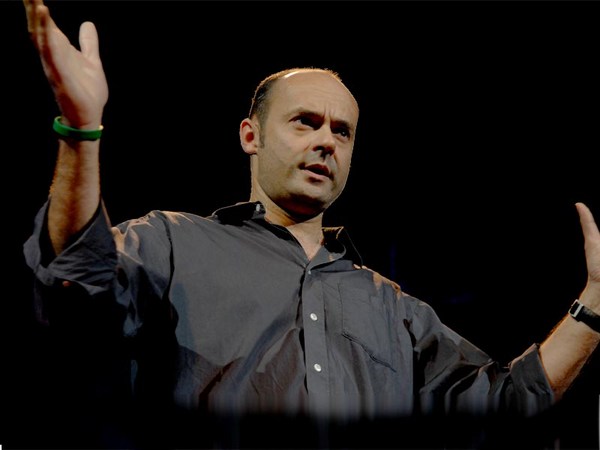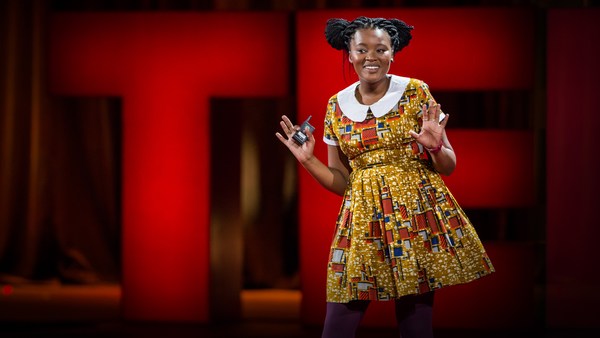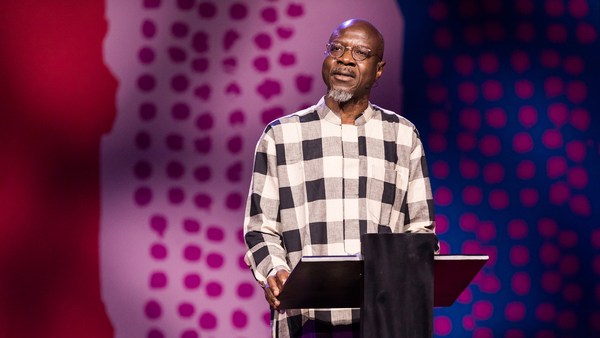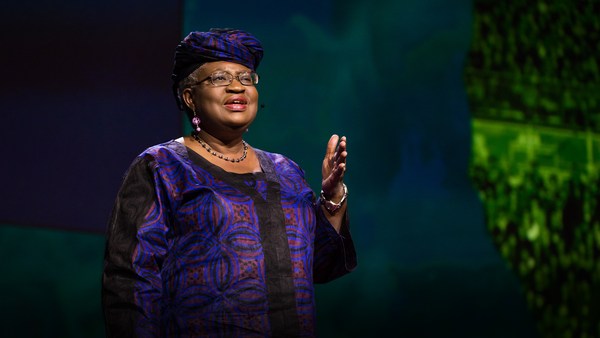As a child growing up in Nigeria, books sparked my earliest imagination, but films, films transported me to magical places with flying cars, to infinite space with whole universes of worlds to discover. And my journey of discovery has led to many places and possibilities, all linked with ideas and imagination.
A decade and a half ago, I moved from working in law and technology in New York to financing, producing and distributing films in Nairobi, Lagos and Johannesburg. I've been privileged to see firsthand how in Africa, film powerfully explores the marvelous and the mundane, how it conveys infinite possibilities and fundamental truths. Afrofuturist films like "Pumzi," Wanuri Kahiu's superb sci-fi flick, paint brilliant pictures of Africa's future, while Rungano Nyoni's "I Am Not A Witch" and Akin Omotoso's "Vaya" show us and catalogue our present. These filmmakers offer nuanced snapshots of Africa's imagined and lived reality, in contrast to some of the images of Africa that come from outside, and the perspectives that accompany all of these images, whether sympathetic or dismissive, shape or distort how people see Africa.
And the truth is, many people think Africa is screwed up. Images play a big part of the reason why. Many tropes about Africa persist from pictures, pictures of famine in Ethiopia 30 years ago, pictures of the Biafran war half a century ago. But on a continent where the average age is 17, these tragic events seem almost prehistoric. Their images are far removed from how people in Africa's many countries see themselves and their neighbors. For them, these images do not represent their reality.
So what is Africa's reality, or rather, which of Africa's many realities do we choose to focus on? Do we accept Emmanuel Macron's imagination of Africa in 2017 as a place in which all women have seven or eight children? Or do we instead rely on the UN's account that only one of Africa's 54 countries has a fertility rate as high as seven? Do we focus on the fact that infant mortality and life expectancy in Africa today is roughly comparable to the US a hundred years ago, or do we focus on progress, the fact that Africa has cut infant mortality in half in the last four decades and has raised life expectancy by 10 years since the year 2000? These dueling perspectives are all accurate. Well, aside from Macron's. He's just wrong.
(Laughter)
But one version makes it easy to dismiss Africa as hopeless, while the other fuels hope that a billion people can continue to make progress towards prosperity. The fact that Africans do not have the luxury of turning their gaze elsewhere, the fact that we must make progress or live with the consequence of failure, are the reason we must continue to tell our own stories and show our own images, with honesty and primarily to an African audience, because the image that matters most is the image of Africa in African imaginations.
Now, honesty requires that we acknowledge that Africa is behind the rest of the world and needs to move swiftly to catch up. But thinking of a way forward, I'd like us to engage in a thought exercise. What if we could go back a hundred years, say to the US in 1917, but we could take with us all the modern ideas, innovations, inventions that we have today? What could we achieve with this knowledge? How richly could we improve quality of life and living conditions for people? How widely could we spread prosperity? Imagine if a hundred years ago, the education system had all the knowledge we have today, including how best to teach. And doctors and scientists knew all we do about public health measures, surgery techniques, DNA sequencing, cancer research and treatment? If we had access then to modern semiconductors, computers, mobile devices, the internet? Just imagine. If we did, we could take a quantum leap forward, couldn't we. Well, Africa can take a leap of that magnitude today. There's enough untapped innovation to move Africa a century forward in living conditions if the will and commitment is there.
This is not just a possibility; it's an imperative for Africa's future, a future that will see Africa's population double to two and a half billion people in just three decades, a future that will see Africa have the world's largest workforce, just as the idea of work itself is being radically reconsidered.
Now taking the leap forward isn't that far-fetched. There are tons of examples that demonstrate the potential for change in Africa. Just 20 years ago, Nigeria had fewer than half a million working phone lines. Today it has a hundred million mobile phone subscriptions, and this mobile miracle is mirrored in every African country. There are over three quarters of a billion mobile phones in use in Africa today, and this has spurred justified excitement about leapfrogging, about bringing the sharing economy, artificial intelligence, autonomous machines to Africa. And this is all promising, but we need to think about sequencing. Forget putting the cart before the horse. You can't put the self-driving car before the roads.
(Applause)
There's a whole infrastructural and logical layer to innovation that we take for granted, but we have to triage for Africa, because some of the biggest infrastructure gaps are for things that are so basic that Westerners rarely have to think about them.
So let's explore this. Imagine your internet access went off for a day, and when it came back, it only stayed on for three hours at a time, with random 15-hour outages? How would your life change? Now replace internet access with electricity. Think of your fridges, your TVs, your microwaves, just sitting idly for days. Now extend this nightmare to government offices, to businesses, to schools, to hospitals. This, or worse, is the type of access that hundreds of millions of Africans have to electricity, and to water, and to healthcare, and to sanitation, and to education. We must fix this. We must fix this because ensuring widespread and affordable access to decent infrastructure and services isn't just low-hanging fruit: it's fundamental to achieving the hundred-year leap. And when we fix it, we might find some unexpected benefits.
One unexpected benefit of the mobile miracle was that it led to what is perhaps the greatest cultural resurgence that Africa has seen in a generation: the rebirth of African popular music. For musicians like P-Square, Bongo Maffin and Wizkid, mobile phones paved the path to local dominance and global stardom. And the impact isn't limited just to music. It extends to film, too. Beautiful, engaging films like these stills of "Pumzi," "Vaya," and "I Am Not A Witch" show. For while its external image might be dated, Africa continues to evolve, as does African film. Now, every now and again, the rest of the world catches on, perhaps with Djo Munga's hard-hitting "Viva Riva!" with Newton Aduaka's intense "Ezra," or with Abderrahmane Sissako's poetic "Timbuktu." With mobile, Africans are discovering more and more of these films, and what that means is that it really matters less in Kinshasa or Cotonou what Cannes thinks of African film, or if those opinions are informed or fair.
Who really cares what the "New York Times" thinks? What matters is that Africans are validating African art and ideas, both critically and commercially, that they are watching what they want, and that African filmmakers are connecting with their core audiences. And this is important. It's important because film can illuminate and inspire. Film can bring visions of the future to us here in the present. Films can serve as a conveyor belt for hope. And film can change perspectives faster than we can build roads.
In just over a decade, Nigeria's film industry, Africa's largest, has taken the country's words and languages into the vocabulary and imaginations of millions in many other African countries. It has torn down borders, perhaps in the most effective way since the Berlin Conference sowed linguistic and geographic division across Africa. Film does speak a universal language, and boy, Nigerian film speaks it loudly.
Making Africa's hundred-year leap will require that Africans summon the creativity to generate ideas and find the openness to accept and adapt ideas from anywhere else in the world to solve our pervasive problems. With focus on investment, films can help drive that change in Africa's people, a change that is necessary to make the hundred-year leap, a change that will help create a prosperous Africa, an Africa that is dramatically better than it is today.
Thank you.
Asante sana.
(Applause)





